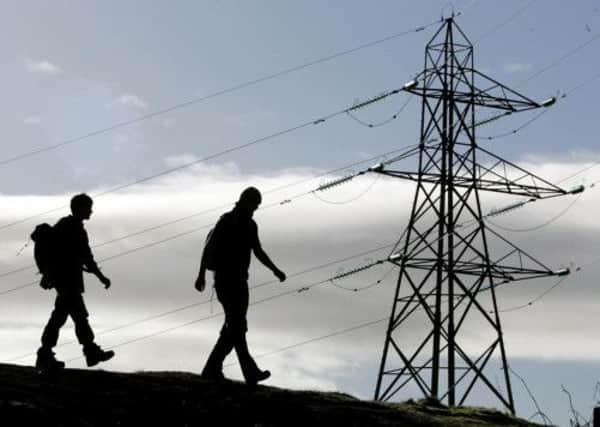SSE profit fall unlikely to halt energy bill row


SSE, which also trades as Southern Electric and Swalec, was the first of the major suppliers to announce tariff increases last month, raising prices by an average of 8.2 per cent.
It was quickly followed by others such as Scottish Gas owner Centrica, which also reports results this week.
Advertisement
Hide AdAdvertisement
Hide AdThe price hikes heightened what has become a political storm over who is responsible for surging energy costs and how prices can best be brought under control. The debate is expected to dominate the political agenda in the run-up to the next UK general election.
David Hunter, an analyst with Schneider Electric and long-standing proponent of market reform, said no-one would reasonably expect any business to run at a loss indefinitely. However, the volatile nature of energy prices means that suppliers will at times dip into the red.
“The long-term average for profit margins has been around 5 per cent, and if retail suppliers have made losses through certain periods, those are usually eventually recovered,” said Hunter.
The figures coincide with consumer group Which? collecting almost 32,000 signatures on a petition calling for, among other things, the splitting of the “Big Six” energy firms into separate supply and generation businesses. Supporters believe this would help bring surging consumer prices under control.
The Big Six have been almost unanimous in their defence, laying the blame on rising wholesale costs, the expense of infrastructure upgrades and the price of government-imposed green levies.
Speaking after SSE announced its price increase last month, group director of retail Will Morris insisted: “We have to do this.”
At the moment, 6 per cent of a gas bill and 11 per cent of an electricity bill go towards government schemes aimed at saving energy and reducing emissions.
“If politicians want to do something to make bills cheaper and fairer, they should take the cost of government policies out of bills and fund them through general taxation instead,” Morris argued.
Advertisement
Hide AdAdvertisement
Hide AdThe utilities, on the other hand, have been accused of flouting parliament by refusing to send their top bosses before MPs to explain their pricing policies. Appearing before the Commons energy and climate change committee, only E.on was represented by chief executive Tony Cocker, with the other five major suppliers sending less senior executives.
Labour leader Ed Miliband is sticking by his pledge to impose a 20-month energy price freeze if his party is successful in the 2015 election. Polls have suggested that the majority of the public supports the idea.
Public anger is such that a survey last week suggested energy companies are now more unpopular than bankers and politicians.
Conceding the need to rebuild trust, Centrica chief executive Sam Laidlaw has promised to forego any bonus this year – a move that his Npower counterpart, Paul Massara, has dismissed as a “gimmick”.
Including the losses from its retail arm, SSE is expected to post a 19 per cent decline in group profits when it reports its half-year results on Wednesday.